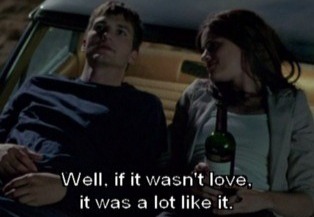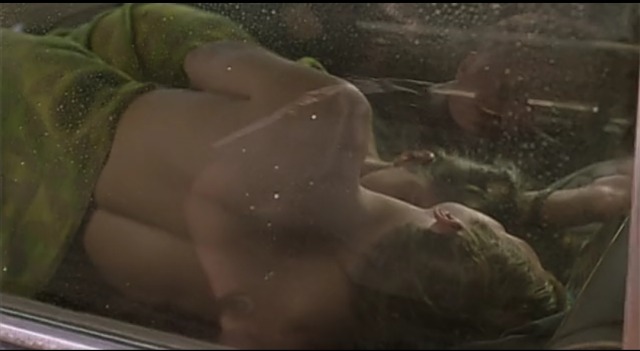#great music
Recently took a closer look at this artist. And wow, she’s super talented and overlooked. Her song Paid is my jam but her new album is definitely worth a listen as well.










Well if it wasn’t Love, it was A Lot Like Love.
Keep yo head up, Jimmy.
Sleepy time time
I’m a sleepy time baby, A sleepy time boy.
Work only maybe, Life is a joy.
We’ll have a sleepy time time…
Sleepy time time,
Sleepy time time all the time.
Asleep in the daytime, Asleep at night.
Life is all playtime, Working ain’t right.
We’ll have a sleepy time time…
Sleepy time time,
Sleepy time all the time.
I have my Sunday, That ain’t no lie.
But on Monday morning
Comes my favourite cry.
We’ll have a sleepy time time…
Sleepy time time,
Sleepy time all the time.
-Sleepy time time,Cream
We went to a shopping mall
And laughed at all the shoppers
And security guards trailed us to a record shop
We asked for Mojo Nixon
They said he don’t work here
We said if you don’t got Mojo Nixon then your store could use some fixin’
-Punk Rock Girl,Dead Milkmen
Listen master, can you answer a question?
Is it the fingers, or the brain
That you’re teaching a lesson?
I can’t tell you how proud I am
I’m writing down things that I don’t understand
-Black Math,White Stripes
Herrmann, you genius..

I was talking with one of my friends yesterday and somehow we ended thinking about what we called “evocative films”, you know, the kind of film that is A Mood, the kind that might have full scenes with no dialog and with the image of the place, sound and music, makes you feel a certain way.
I thought about Pride & Prejudice (2005), from the sunrise with the piano (I mean, what an opening scene!), to all the walking, the rain,Mr Darcy just appearing from the fog, and of course THAT CLIFF. I mean, I’m sure you saw the image at the top of the post and HEARD the music XD

I think period films (and series) are especially evocative, so here are some other films I thought about that are a MOOD. Please reblog or comment with your choices of this kind of films (or series!). Remember to click on the links so you can see the video of what I mean.
If you didn’t get pulled into the world of Thomas Shelby while he’s riding his horse int he noisy 1919 Birmingham, then I don’t know what you are doing. But that is not my favourite Mood scene, that’d be the series 2 finale (7 year old spoiler I guess?), with the fog and the open grave, no music and a knot in our collective stomachs. Chef kiss.

1920s China, the high mountains and river of Yizhou in Guangxi, and a Perfect score by Alexandre Desplat. The locations of this film are beyond gorgeous, and the mood they set you in while you listen to Lang Lang playing Satie, is the perfect evocation of melancholy for a time and place you don’t even know. Just check these scenes of Naomi Watts and Edward Norton. Just perfect.

If you’ve never seen Orlando, then you are missing a very young Tilda Swinton being the ultimate shapeshifter she is, starts as a man in the Elizabethan period and changes into a woman through time. Based on the Virginia Woolf novel, I see a maze and I’m THERE. Also, yeah, I really like fog.

OF COURSE Jane Eyre had to be here, as I mentioned in a previous post, that film is A Mood. Love the colours, the silence, the fabrics, the house, the landscape, Michael Fassbender (lol). And honestly, I just LOVE Mia Wasikowska in all period films, I feel she’s got a very Victorian face (does that make any kind of sense?).

Along with all of the race and colonialism issues with this movie (remember to be critical of the media you consume! But it doesn’t mean you cannot enjoy it!), it is such a mood and the music is just PERFECT. EPIC in the best sense of the word. One of my favourite parts is the cut with the match, and I mean, I even love the intermission music (yeah, I have seen this film way too many times).

Come on, it is in the title. This film is such a mood, with few dialogs and iconic music, and it leaves you with a very particular feeling that will return each time you happen to see a still from the movie, when you listen to Shigeru Umebayashi’s music, see the retro 60s aesthetics of Hong Kong, or when you stumble into “aquellos ojos verdes…”. Also: Tony Leung.

Finally, I added two more that are not period but MAN I love so much:
For people with strong stomachs, this series is just perfect, and the incidental sounds and non melodic music played along the perfectly curated visuals, this series is an entire mood: dark, deep, and disturbingly beautiful. One of my favourite scenes is Will sleepwalking, showing his full vulnerability; and of course, any and all dinner scenes. Each time I rewatch this series, I am left with a knot in my stomach and find new stuff to see and feel.

The Last Life In The Universe (2003)
This Japanese film is quite small, and everything starts bad and goes on to be worse and worse (WARNING: it features a lot of suicide idealisation). A young Asano Tadanobu stars in this movie that is sad, quite and moody, that talks about death and people finding love (for others and themselves).

The restricting gates of classical music were thrown wide open during this period, as logic and structure fell behind, and musical appeal and and emotion mattered more.The romantic composers were a diverse group, each with their own signature style. Some made their pieces sound angry, others sad, and some soulful. There were composers which have recordings or even videos of themselves playing their own or someone else’s pieces.Europeans were extremely posh during this era, wearing tall hats and smoking gold cigars in all their photos.
- As more and more scientific discoveries were being made, composers used their wild imaginations to create what they thought was the future in their operas.
- They conveyed the sense of atmosphere by using techniques to create the sound of a storm or a forest, etc.
- The type of emotion they conveyed depended on either their personal life, or the life of a fictional or real character or person that they heard or read about.
- They did not allow cadences to end to create unending melodies.
- Use of sul ponticello and sul tasto.
- Accelerando, rubato, and ritardando became more common.
- As mentioned, pieces are more emotional than pre-romantic music.
- Sul G (Higher notes played on the G string) became extremely popular with violinist-composers)
- Piano became more popular than ever, and this period saw piano repertoire overtake violin, cello, and clarinet repertoire, which had the biggest amount till the classical period.
- Virtuosos for violin and piano emerged (Ysäye, Paganini, Chopin, Liszt)
- Romantic music was sometimes very triumphant and through this, the brass section’s role increased.
- Each of these composers were very mysterious, leaving behind puzzles (Tchaikovsky’s death, Sibelius’ 8th Symphony, Elgar’s enigma variations)
- No composer wrote more than 9 symphonies (This is said to be because of a curse laid by Beethoven)
- Most romantic composers were part of the nationalism period too.
- The piano grew from 5-10 octaves, and the frame was now made from metal rather than wood. The string quality improved, which led to the further popularization of the piano. Orchestras in the classical period typically had about 30 musicians, but orchestras now grew in size upto a 100 musicians. The etude was a new musical form was created for the intention of both showing off virtuoso skill and as a training excercise for students. Preludes, which were earlier used as an introduction to a larger work like an opera, now became a standalone pieces.
- The romantic period was the prime time for artistic expression and rule breaking. Romanticism evolved into impressionism by the end of the 19th century.
- Romantic composers were extremely fascinated by the past, future, unexplained concepts, characters that science did not describe, etc. Some of those concepts were:
- A new preoccupation with the concept of surrender to Nature and God’s will. The composers who were fascinated with the past would compose operas or symphonies on this medieval concept.
- As mentioned above, these composers had a great fascination with the past, particularly the Middle Ages and legends of medieval chivalry. They also had a fascination with ancient Greek and Roman myths.
- A turn towards the mystic and supernatural, both religious or merely spooky. The composers, though they did not believe in religion and superiority of one religion, were fascinated by its concepts and composed works by applying their wild imaginations to them. A focus was given to the nocturnal, the ghostly, the frightful, and terrifying
- A longing for the infinite. They drew their own conclusion on their opinion on what the infinite was and infused it into their works
- This period’s composers wrote for the general public instead of for the high class or musically knowledgeable ones, like was done in the periods before this one.

